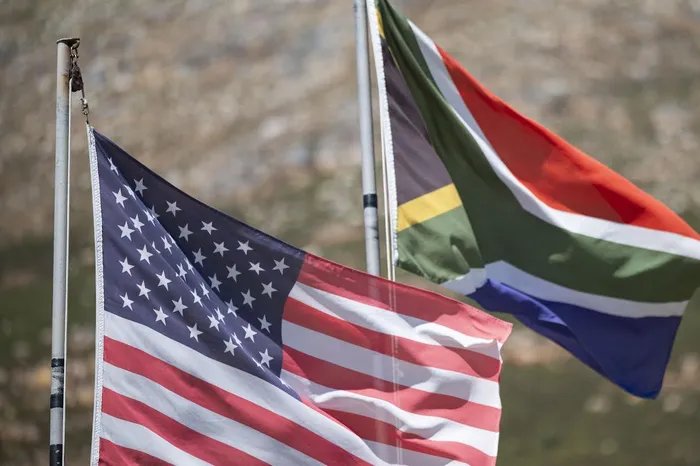
South Africa has been without an ambassador to the US since March when Ebrahim Rasool was axed over comments the Donald Trump administration claimed were an attack on that country.
Image: Armand Hough/Independent Media
THE Presidency played its card close to the chest when asked about when President Cyril Ramaphosa would appoint an ambassador to the US.
South Africa has been without an ambassador to the US since March when Ebrahim Rasool was axed over comments the Donald Trump administration claimed were an attack on that country. In response Ramaphosa appointed Mcebisi Jonas as a special envoy.
However the DA claimed the president was told Jonas was not an acceptable candidate for the mission to Washington and was urged to name a different envoy.
The US has also imposed 30% tariffs on South African products exported to that country. This is expected to come to effect next month.
South Africa is also on the brink of losing its African Growth and Opportunity Act (AGOA) status when it expires this year. That trade program enables economic growth and development in sub-Saharan Africa by providing eligible countries including South Africa with duty-free access to the U.S. market for thousands of products.
Approached for comment on the status of Jonas’s visa and when the president would name an ambassador, the presidency said they had no further comment before referring the Cape Times to a previous statement on the matter, accusing the DA of spreading disinformation.
“The Presidency cautions South Africa against treating Democratic Alliance (DA) disinformation on matters of international relations and diplomacy as official government policy. This campaign has its origins in a Democratic Alliance visit to the United States earlier this year, to advance an ideological agenda rather than our national interest.
“The Democratic Alliance’s latest effort to embarrass President Ramaphosa’s Special Envoy to North America, Mr Jonas Mcebisi, involves claims - in the DA’s framing – that the United States has rejected Mr Jonas’s “credentials” and that Mr Jonas is therefore unable to perform his role as Special Envoy. The DA seeks to add sensationalism to its claim by suggesting President Ramaphosa and Mr Jonas face a crisis in view of the United States’ pending implementation of trade tariffs announced several days ago by President Donald Trump, said the Presidency.
DA spokesperson on Trade, Industry & Competition, Toby Chance said the Presidency’s response was “unconvincing” and placed responsibility on the Department of Trade, Industry and Competition (DTIC) to secure a US trade deal in the two weeks left before the August 1 deadline, when AGOA expires.
“DTIC’s complacency is a risk hanging over the heads of every worker in our car factories and on our farms – it must take action as a matter of urgency. The Department must tell South Africans whether it made written submissions to Congress on AGOA ahead of the 30th June deadline, and whether it is sending delegates to make oral submissions on 18th July. It must also provide details on whether this negotiation takes the form of a Trade & Investment Framework Agreement or a full bilateral trade deal,” said Chance.
The DTIC did not respond to requests for comment by deadline.
International relations expert and director at Surgetower Associates Management Consultancy, Siseko Maposa said Jonas was a known Trump critic, hence his appointment “always reeked of poor judgment”.
“Predictably, the DA will capitalise on this while the ANC scrambles for excuses. This merely exposes the GNU's fundamental dysfunction. While this post retains some relevance for non-trade discussions, its practical impact remains negligible - certainly insufficient to influence President Trump's tariff policies which hang like a spectre.
“The trajectory of US-South Africa relations has crystallised under this administration. Trump and his Republican allies will only reconsider the bilateral relationship if Pretoria demonstrates tangible policy shifts: abandoning its anti-Israel stance and cutting ties with so called “terrorist” nations. In this reality, maintaining an envoy to Washington serves more as diplomatic theatre than strategic necessity. Yet protocol persists, so an appointment is needed,” he said.
Cape Times
Related Topics: